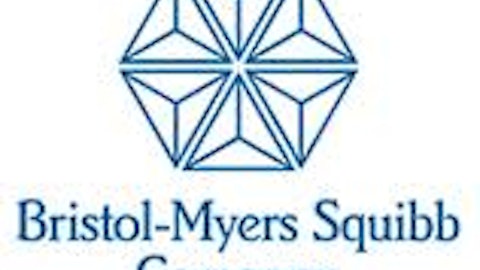Biotech investors rejoice. The ASCO abstracts are here. The annual meeting of the American Society of Clinical Oncology starts on May 31, but the organization releases most of the 4,700 abstracts — available here — tonight.
Here’s a breakdown of some of two themes we’ll see at the meeting.

Harnessing the immune system
In theory, immune cells can recognize and kill tumors, but cancer cells have developed molecular breaks that tell the immune cells that they shouldn’t be killed. Drugs developed by Roche Holding Ltd. (ADR) (OTCBB:RHHBY) and Bristol Myers Squibb Co. (NYSE:BMY) are designed to block those breaks, allowing T cells to do their job.
The molecular break involves PD-L1 on the tumor cell binding to two receptors, PD-1 and B7.1, on the T cells, which signals to the T cell not to kill the tumor cell. There’s also another molecule in the same family called PD-L2 on tumors that also activates the blocking signal through PD-1.
Roche Holding Ltd. (ADR) (OTCBB:RHHBY)’s MPDL3280A acts on the tumor side, binding to PD-L1 to block the signal. Bristol Myers Squibb Co. (NYSE:BMY)’s nivolumab binds to PD-1 on the T cell to block the signal.
Both trials testing MPDL3280A and nivolumab are phase 1 trials, but they produced fairly remarkable results.
The trial that tested MPDL3280A in patients with lung, melanoma, kidney, head and neck, colorectal, and bladder cancers that had progressed after multiple prior treatment produced a 36% overall response rate in patients whose tumors stained positive for PD-L1. Of the 29 patients who responded to the drug — PD-L1 negative and positive — 26 continued to respond some three to 15 months later. That’s pretty impressive given the amount of pretreatment.
Nivolumab was combined with Yervoy, Bristol Myers Squibb Co. (NYSE:BMY)’s melanoma drug that stimulates the immune system in a different way. When the drugs were given concurrently, 53% of melanoma patients had an objective response with 41% seeing at least an 80% tumor deduction after just 12 weeks of treatment. Bristol Myers Squibb Co. (NYSE:BMY) plans to start a phase 3 trial of the combination in advanced melanoma this year.
What’s probably most amazing is how well this pathway seems to be conserved in different types of tumors. Roche Holding Ltd. (ADR) (OTCBB:RHHBY) tested six different cancer types, and Bristol Myers Squibb Co. (NYSE:BMY)’s combination therapy is also being tested in lung and renal cancers.
When the immune system is the problem
While the immune system can help eradicate tumors, it can sometimes go haywire itself, leading to leukemia.
In a phase 1 trial testing idelalisib in chronic lymphocytic leukemia patients who had failed a median of five prior regimens, half of the patients saw tumor shrinkage with an average duration of 17 months. Typically, you might see patients benefit for six to 12 months from their sixth treatment.
As a targeted therapy, the side effects seem to be more tolerable than chemotherapy, which is especially important since CLL tends to affect the elderly. Gilead Sciences, Inc. (NASDAQ:GILD) has already started a phase 3 trial for idelalisib.
The best is yet to come?
Late-breaking and plenary abstracts aren’t released until the day of the scientific presentation at the meeting, so we could see some more interesting data in a few weeks. Until then, have fun reading the other 4,697 abstracts.
The article Cancer Meeting Highlights the Good and Bad of the Immune System originally appeared on Fool.com is written by Brian Orelli.
Fool contributor Brian Orelli has no position in any stocks mentioned. The Motley Fool recommends Gilead Sciences.
Copyright © 1995 – 2013 The Motley Fool, LLC. All rights reserved. The Motley Fool has a disclosure policy.

